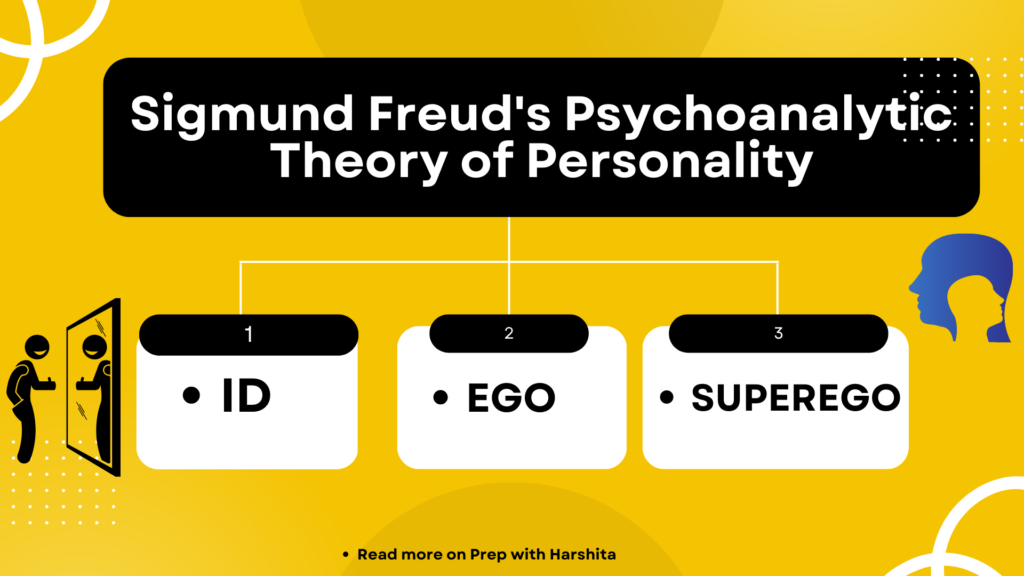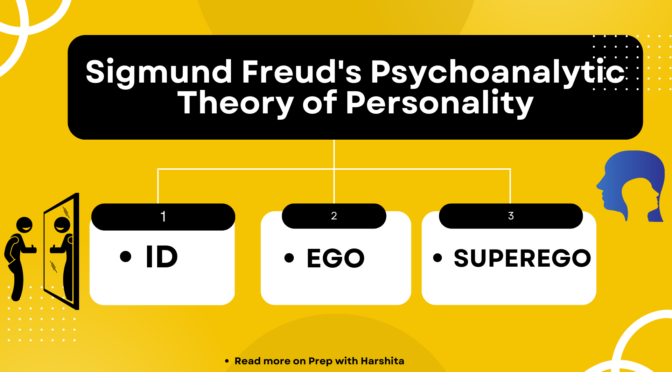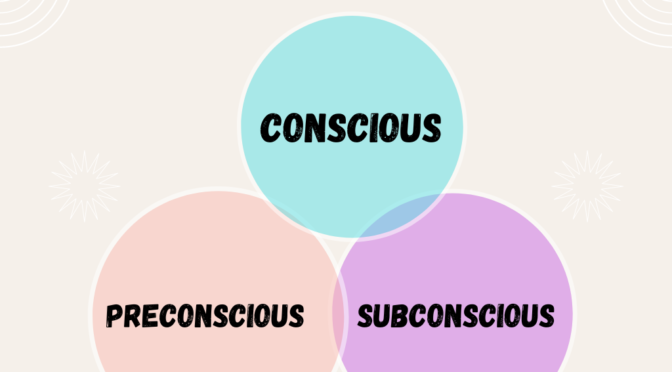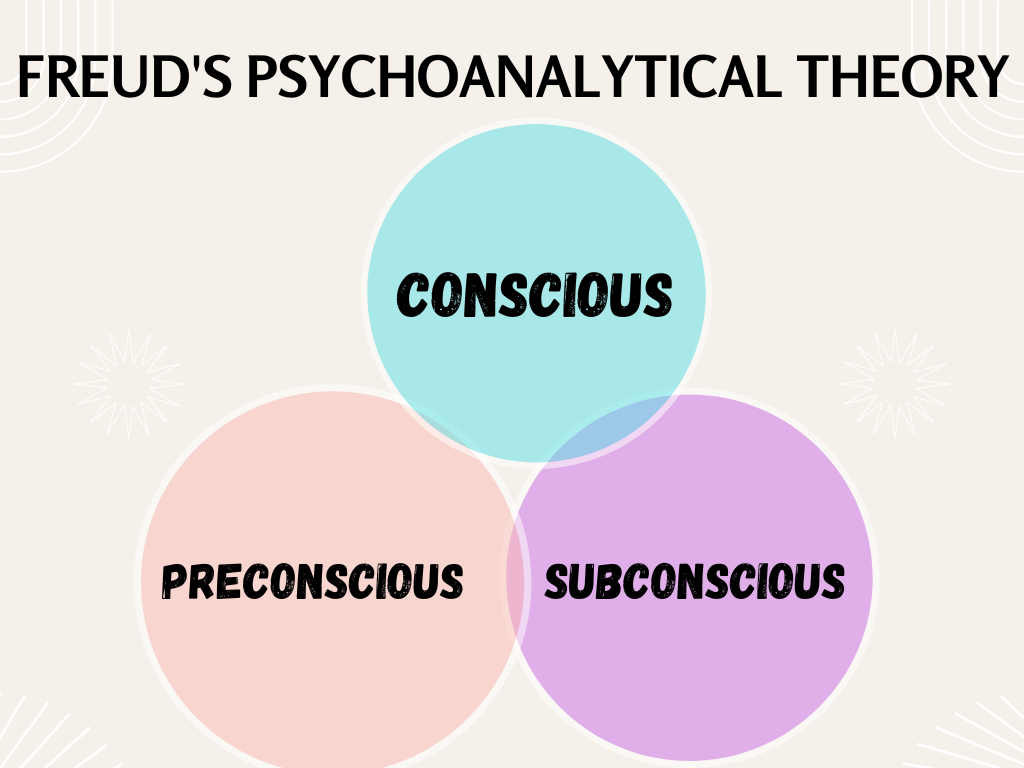Sigmund Freud’s psychoanalytic theory of personality is based on the idea that unconscious psychological forces, including conflicts and repressed emotions, influence behavior and mental health.
According to Freud, the human psyche is composed of three main components: the id, ego, and superego.
- Id: The id is the most primitive and instinctual part of the psyche. It operates according to the pleasure principle, seeking immediate gratification of basic needs and desires, such as hunger, thirst, and sex. The id is entirely unconscious and seeks to satisfy these desires without any consideration for the consequences.
- Ego: The ego is the rational and conscious part of the psyche that mediates between the id and external reality. The ego operates on the reality principle, seeking to satisfy the id’s desires in ways that are socially acceptable and consistent with the demands of the external world. The ego also has the function of repressing or sublimating impulses that are unacceptable to society.
- Superego: The superego represents the internalized moral and ethical standards of society, as well as the individual’s own ideals and aspirations. The superego operates on the morality principle, seeking to impose a sense of right and wrong on the id’s impulses. It can lead to feelings of guilt or shame when a person’s behavior violates its standards.
According to Freud, personality develops through a series of psychosexual stages, each of which is associated with a different erogenous zone and a specific conflict that must be resolved in order to progress to the next stage. If conflicts are not resolved successfully, they can lead to fixation at a particular stage and the development of personality traits associated with that stage.
Psychoanalytic therapy aims to uncover and resolve unconscious conflicts and repressed emotions through techniques such as free association, dream analysis, and transference. Critics of Freud’s theory argue that it is too focused on sexual and aggressive impulses, and that it is difficult to test empirically. Nonetheless, Freud’s work has had a significant impact on psychology and continues to influence the field today.
Also Read : Types of Cognitive Processes

Also Visit : Prep with Harshita



